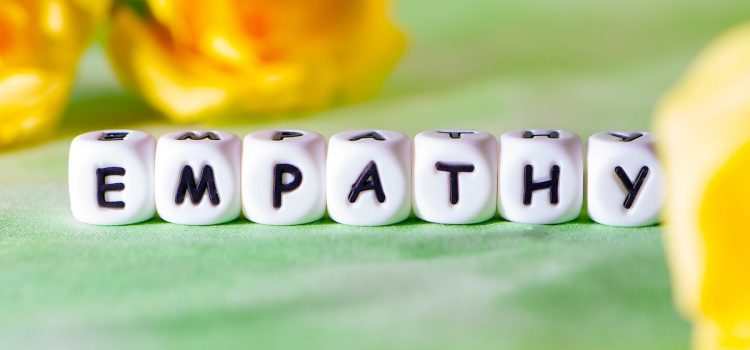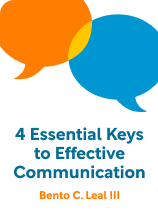

This article is an excerpt from the Shortform book guide to "4 Essential Keys to Effective Communication" by Bento C. Leal III. Shortform has the world's best summaries and analyses of books you should be reading.
Like this article? Sign up for a free trial here.
What’s the key to effective communication? Why is empathy so important?
In 4 Essential Keys to Effective Communication, Bento C. Leal claims that the first ability of a good communicator is having an empathetic perspective. This will allow you to understand someone’s feelings and experiences better.
Let’s look at how an empathetic perspective will boost your conversations.
Take an Empathetic Perspective
Leal explains that taking an empathetic perspective is the first ability of effective communication. Having empathy is understanding someone’s feelings and experiences from their perspective rather than your own. An empathetic perspective is a frame of mind in which you believe everyone deserves empathy due to their inherent worthiness as unique individuals.
Developing an empathetic perspective is the first ability you must learn because it enables you to listen to others with your undivided attention—the foundation of the other two abilities. When you see someone as unique and having inherent worth, their words hold importance. When you view someone’s words as important, you’ll want to listen closely so that you fully understand them. This internal desire to listen to the other person makes it much easier to give them your full attention, avoid distraction, and gain a complete understanding of their words.
(Shortform note: Some experts agree that empathy is a crucial ingredient, if not the most important ingredient, for moral action and effective communication. Taking an empathetic perspective involves understanding that others have important needs and are deserving of kindness, making us more likely to have effective interactions and avoid harmful communication like bullying. However, other experts argue that viewing people with an empathetic perspective and taking the time to fully understand them might actually inhibit effective communication. This is because people aren’t always equipped to take on the strong emotions of others (by listening and empathizing) and therefore avoid communication altogether.)
There are two main practices for developing an empathetic perspective:
Practice #1: View Yourself as Worthy and Unique
Before you can see worth in others, Leal argues that you first must view yourself as worthy—you must believe that you’re a unique person who has something important to add to the world. To cultivate self-worthiness, Leal recommends engaging in practices that help you recognize your passions, talents, and abilities—the things that make you worthy and unique. For example, watch a movie that ignites your passion, create a list of your accomplishments and goals, or write down all of your unique characteristics.
(Shortform note: Psychologists reiterate that how you view yourself and your own worth impacts your relationships and communication with others. If you have low self-esteem and believe that your opinions and feelings aren’t important (that you’re not worthy or unique), you’re likely to develop toxic communication habits like hiding your thoughts or failing to provide others with support. They add that the underlying reason for poor self-image is often abuse or trauma from childhood. In this situation, the best way to build your self-esteem and improve your relationships is to attend therapy.)
Practice #2: View Others as Worthy and Unique
According to Leal, once you’ve developed self-worth, turn your perspective outward and look for uniqueness and worth in others. In other words, view them with empathy. To do this, consider the positives of each person you encounter and your relationship with them—what are their skills, talents, positive traits, and so on? What can you learn from them?
Sometimes, it can be hard to think of positives over negatives when we’re speaking with someone we don’t like or are uninterested in. In these situations, Leal recommends taking a moment to fix your perspective: Quell negative thoughts, consider all the positive qualities of the person, and re-engage with a more positive outlook.
(Shortform note: While Leal recommends focusing on people’s positive traits and ignoring their negative ones to foster empathy, this may not be advisable in all situations. If the other person is exhibiting relationship “red flags” like jealousy, gaslighting, or verbal abuse, ignoring these traits in favor of positive ones can harm your well-being and self-worth. Further, by decreasing your self-worth, these interactions will likely decrease your ability to see worth in others (as explained in the previous section). Experts explain that to maintain your well-being, and consequently your ability to empathize with others, you should directly address the issues with the other person and know when it’s time to end the relationship.)

———End of Preview———
Like what you just read? Read the rest of the world's best book summary and analysis of Bento C. Leal III's "4 Essential Keys to Effective Communication" at Shortform.
Here's what you'll find in our full 4 Essential Keys to Effective Communication summary:
- How to avoid the two most damaging communication faux pas
- How to listen and express yourself with empathy
- Why having empathy for others starts with seeing the worth in yourself






